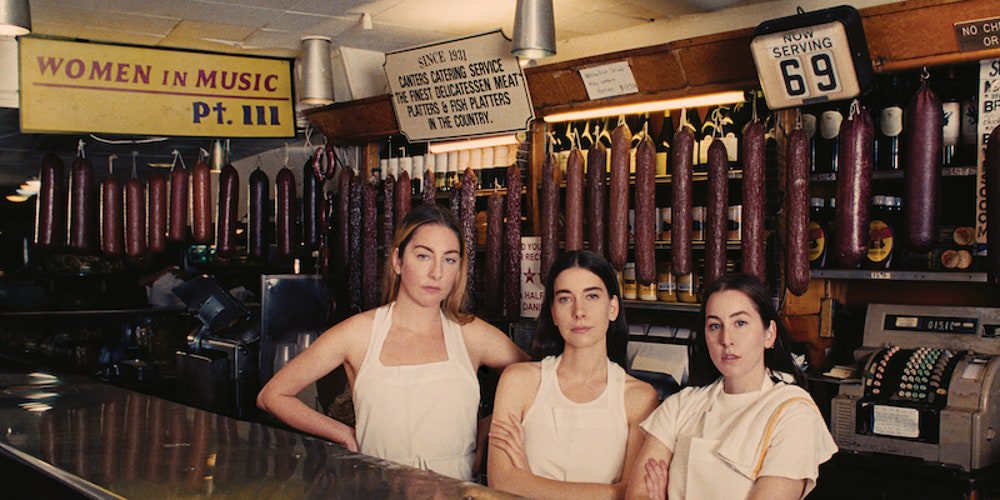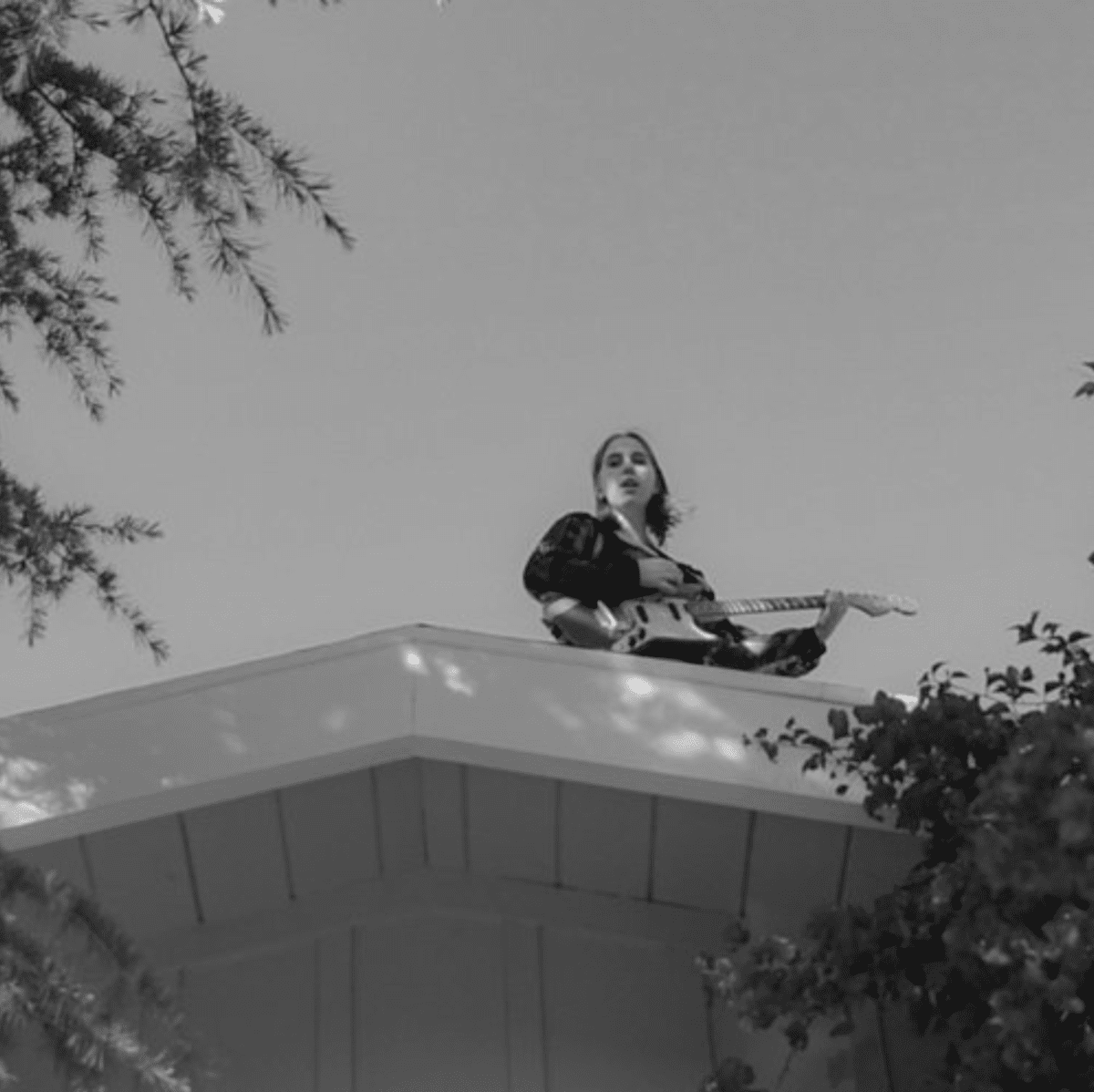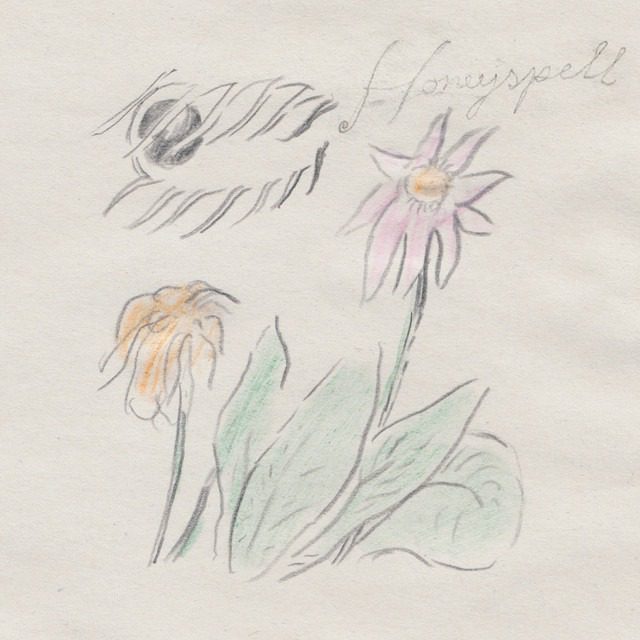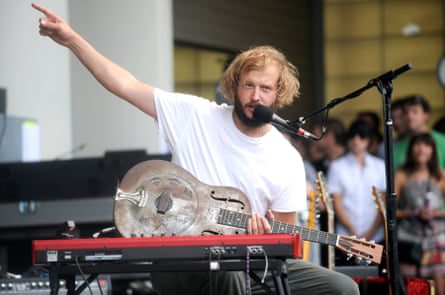
Haim
It’s well known that the only three people who take long walks through the streets of Los Angeles are Haim. The image of the trio striding or line-dancing their way around the city is indelibly linked to their music: cool, confident, full of momentum. The videos to accompany their third album, Women in Music Part III, nod to the strolls of the past and add in a few new twists. In “Now I’m in It,” directed again by Paul Thomas Anderson, bassist Este and guitarist Alana carry Danielle (lead vocals, production, guitar) on a stretcher; when Danielle is revived and joins her sisters for their signature walk, she casts a knowing glance straight to camera. In another video, they’re trailed by a gloomy saxophonist; in another, they stand rooted to the spot. These videos show the evolution of Haim, whose songwriting on WIMPIII is likewise more nuanced, more self-aware, and frequently darker than ever before.
The biting satire of the album’s title is something of a red herring for its explicitly personal content. In interviews, each sister has described a personal trauma that she brought to the studio. Alana has spoken of the grief she suffered when a best friend passed away at age 20, and Este has talked about the low points of living with Type 1 diabetes. Most felt is Danielle’s deep depression; she traces its origin to when her partner (and co-producer) Ariel Rechtshaid was diagnosed with testicular cancer in 2015.
Historically, Haim’s lyrics have been conversational and straightforward: emotionally incisive, sure, but usually vague enough that you could easily place yourself inside them. On WIMPIII, though, Danielle writes in vivid scenes, pulling you inside her personal depression fog. She blinks awake and finds herself at the wheel of her car; she watches TV and stares at the ceiling; she goes to the boulevard and can’t stop crying. On the stomping country-rock of “I’ve Been Down,” she sings about taping up the windows of her house, adding sardonically, “But I ain’t dead yet.” Elsewhere, the sisters cut and paste the most offensive interview questions they’ve faced from music journalists (“Do you make the same faces in bed?”) into a candid folk song that channels the spirit of Joni Mitchell.
Danielle was also inspired by André 3000’s solo album The Love Below, an exploratory record that sewed together disparate genres with uninhibited slapstick humor. While WIMPIII is more theatrical than Haim have been before—there’s the gasp that opens the underwater rock song “Up From a Dream,” the “you up?” voicemail skits on “3 AM”—the most obvious similarity is in the band’s newfound musical fluidity. With signature production touches from Rostam throughout, these songs shift gears, often eschewing Haim’s usual summery rock to find the right genre for the mood, sometimes containing different shades within the same track. “All That Ever Mattered” peppers Danielle’s vocals with distorted screams and a mumbled interjection of “fuck no,” before pirouetting away into a glam-rock guitar solo. “3 AM” and “Another Try” flirt with falsetto-driven funk and R&B, and “I Know Alone,” a song about depression-scrolling and sleeping through the day, contains dusty echoes of UK garage.
Not every song feels like a pioneering event. “Don’t Wanna” could have lived on any of Haim’s three albums: a tight pop-rock song built around an irrepressible guitar lick and an oblique story of a relationship in trouble. But their most exciting trips go off the beaten path, like the crystalline sad banger “Now I’m in It”—a song that wouldn’t have sounded out of place on Taylor Swift’s Lover. This may be the first Haim album that steps out of its retro groove long enough to draw parallels with other contemporary pop music, specifically Rechtshaid and Danielle’s recent work with Vampire Weekend. Having long since proven their chops when it comes to writing a breezy 1970s-style rock song, they now sound comfortable enough within their niche to push beyond it.
WIMPIII is bookended by two songs about L.A., both featuring a saxophone and wistful “doot-do-do” backing vocals. On the first, “Los Angeles,” Danielle describes falling out of love with her hometown. But in the final song, “Summer Girl”—while its melody hits a similarly melancholic vein—she interpolates Lou Reed as she sings about the relief of coming home to L.A. from tour to be with her partner. She’s anguished when she sings that she’s “thinking ’bout leaving” the city, but hushed and reverent on a later line when she reflects on how much she misses it: “L.A. on my mind, I can’t breathe.” Placed beside each other, the two songs take on new dimensions. It’s Haim as we haven’t quite heard them before: not just eminently proficient musicians, entertainers, and “women in music,” but full of flaws and contradictions, becoming something much greater.
Listen to our Best New Music playlist on Spotify and Apple Music.
Buy: Rough Trade
(Pitchfork earns a commission from purchases made through affiliate links on our site.)
Correction: An earlier version of this review omited the production work of Rostam.




